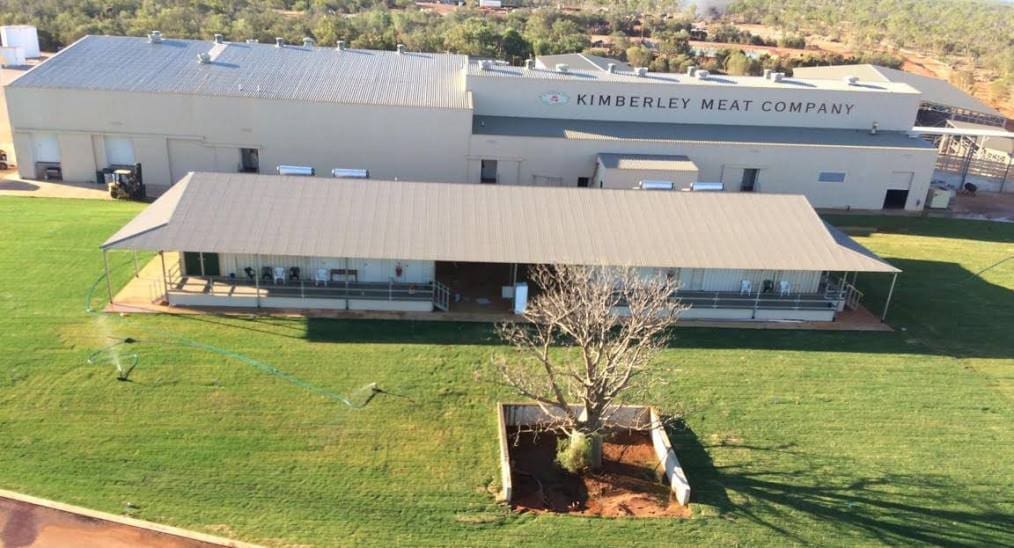
Aerial view of the new Kimberley Meat Co facility between Broome and Derby
JACK Burton and partners’ new Kimberley Meat Co beef abattoir is officially opened today, representing only the second new meat processing plant to be established in northern Australia in the past 50 years.
Along with AA Co’s Livingstone plant near Darwin, the new facility, located between Broome and Derby in Western Australia’s remote northeast, blazes an important trail for red meat processing in northern Australia.
About 200 guests including state and local council politicians, regulators and other government stakeholders, service providers, contractors, and the local business community are gathered at the site this morning for the official opening being performed by WA’s agriculture and food minister, Dean Nalder.
By any standards, given the history of meat processing across northern Australia over the past half century in the face of the rapid growth in the live export industry, the project is a brave move.
The visionary behind the project is local cattleman, Yeeda Pastoral Co principal Jack Burton. He has shown an interest in processing his own beef for some time – for some years getting cattle killed and boned near Perth – but it was the calamitous 2011 live export market closure that provided the real catalyst for progress towards development of a processing facility on Yeeda Station.
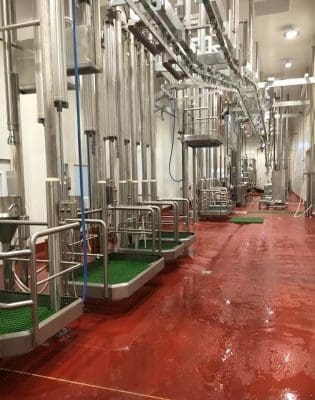
Part of the kill floor chain in the new Kimberley Meat Co processing facility
Planning and development work on the site has progressed, somewhat sporadically, since then as finances have allowed, finally delivering the impressive facility represented in the images accompanying this article.
Mr Burton has not disclosed the size of his and his business partner Merv Keys’ investment. But given the infrastructure evident in the images published here, and accessible via the photo gallery at the base of this page, it clearly represents a commitment of many millions of dollars.
Beef Central spoke at length with Kimberley meat Co general manager Geoff Bevan yesterday about the project, as the finishing touches were being applied in advance of today’s opening ceremony.
Here’s some key features, from what we’ve learned:
- Some initial domestic trial kills have already gone through the plant in the commissioning process, but numbers will now gradually scale-up to a target of 250-300 head per day. That’s likely to be reached within the next few months.
- While the facility includes a boning room, initially the output will be frozen and chilled quarter beef only, transported back to Perth in refrigerated containers under attractive ‘back loading’ rates using trucks that head north full, but would otherwise run home empty. Chilled beef boning is possible in future.
- Once export licenses and country approvals are in place under Kimberley Meat Co’s current Tier Two export accreditation, chilled and frozen exports are expected to start into markets like Vietnam, Indonesia and Malaysia, departing out of Perth. Air-freight export is also a possibility. USDA export approval,is expected to follow, allowing the primary turnoff of manufacturing meat to flow into the huge US hamburger beef market. Yeeda’s non-use of HGP, and totally grassfed production systems provide opportunity to penetrate niche manufacturing beef markets for both. Already brands and logos have been developed to underpin and differentiate the product’s ‘clean and green’ status in export and domestic markets.
- Livestock supply for the project at the early stage will be entirely supplied from within Yeeda Pastoral Co’s own aggregation of northern properties, numbering around 95,000 head across seven or eight Kimberley holdings. Kills will primarily be cull cows and bulls to produced manufacturing beef. Purchased cattle may follow later. As illustrated in the pictures above, livestock infrastructure includes an unloading facility for triple road trains, allowing six decks to be unloaded at a time. This is perhaps a unique feature for any beef abattoir in Australia, Beef Central believes. A large set of holding yards will be built on the cleared area in the photograph, to the left of the unloading ‘circle.’
- The processing facility itself is located on Yeeda station, half-way between Broome and Derby, allowing cattle to be virtually walked out of the paddock, via laneways, to the knock box, with zero transport stress or dehydration. It is anticipated that this will allow the plant to operate up to 10 or 11 months of the year, perhaps stopping for a month’s maintenance during the height of the wet season when cattle movement is difficult.
- Staffing in the initial slaughter-floor only stage number around 25 personnel, but once the boning room is commissioned and throughput rises, numbers could rise to as many as 80 staff. Labour has not proved any sort of issue to this point. There are already some 457 visa holders on staff, and there has been a very strong level of interest among local Broome-Derby people looking for work.
- The plant has chiller capacity for around 320 head per day as quarter beef, and 80 head per day as quarter beef in blast freezers. Alternatively the two blast freezers have combined capacity to handle 28 tonne of boxed meat per day, once boning commences. Excluding bulls, killing 250 cows a day @ 220kg carcase weight would yield around 55 tonnes of carcase beef, or perhaps 33t of boxed beef per day.
- For typical cows and bulls like those that will make up the plant’s ‘bread and butter’ kills – mostly animals unsuitable for live export – the freight to ship them for slaughter to the nearest alternate abattoirs in WA’s southwestern corner costs around $150 a head. Add $30 a head to that for dipping and spelling. Short of that marketing option, the region’s only other alternative is to let old cows and bulls die in the paddock.
The plant itself is established on 35 acres of Freehold title land, in the middle of the surrounding Leasehold grazing enterprise. That’s an important distinction in a region where virtually all privately owned land is leasehold tenure for grazing purposes, in order to provide greater security of tenure over the considerable investment in the abattoir infrastructure.
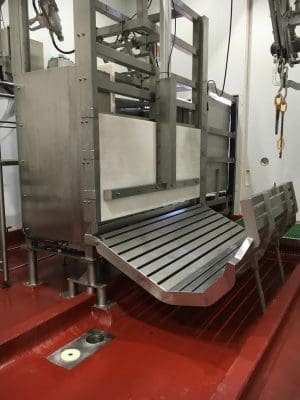
Brand new ultra-modern stainless steel knock-box
Mr Bevan said feedback and results so far, including phyto-sanitary performance out of small early consignments into the Perth domestic market had been ‘exceptional.’
“One of the beauties about this business is that we do have an assured cattle supply,” he told Beef Central. “A lot of boning rooms and processing facilities in the south (WA, as well as eastern states) are closing down, or cutting back on days, due to lack of numbers.”
“But we can see, well ahead, what our cattle supply is looking like. It takes one of the big unknowns out of the equation, in not having to source cattle for a kill each week. There would be 15,000 Yeeda cattle in surrounding paddocks and areas now, waiting to be slaughtered,” he said.
Much of the construction and fitout of the facility has been done by Tyron Dennison from Food Equipment Australia (FEA), who has built close to 25 abattoirs in remote locations across the world, including the Middle East.
Kill floor operations manager is John McQuillan, who brings deep experience across WA processing operations to his new role, and is making a major contribution to the project.
“We’re in the box seat right now, with cattle prices and meat prices both pretty good,” Mr Bevan said.
The big question now, in Beef Central’s mind, is, “Is this boutique-scale Yeeda manufacturing beef processing model repeatable across northern Australia?”
Only time will tell whether the plant is financially viable, but for starters, captive cattle supply is obviously part of the pre-requisite to make a process like this happen elsewhere.
About Yeeda Pastoral Co:
From humble beginnings, Yeeda Pastoral Co has grown into a fully-integrated red meat business with a herd of 95,000 cattle in Western Australia.
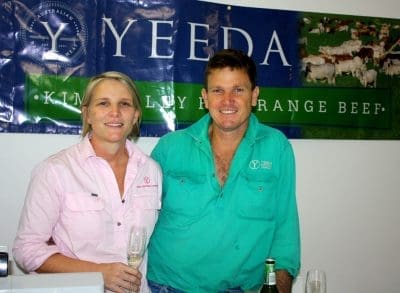
Jack and Vicki Burton from Yeeda Station. Image: Ringers from the Top End.
Jack & Vicki Burton purchased the pastoral leases and freehold land at Kilto Station, 60km from Broome, in the early 1990s and set about building a substantial horticultural and cattle business with the intention to expand into investment in forestry and outback tourism.
While building up their cattle herd, they developed acreage under irrigation where they farmed cash crops on an extensive scale.
In 1999, the opportunity arose for the Burtons to purchase Yeeda Station, the adjoining Station to Kilto. In order to fast track their vision, Yeeda Pastoral Company was formed and the Burtons teamed up with the Taberer and Keys families , who provided additional equity funds, and the broader vision for Yeeda commenced, with 3 equal partner families.
In 2001, Yeeda acquired Mt Jowlaenga Station which adjoins Yeeda Station. Then in 2003, Yeeda acquired the Springvale Station aggregation area which includes Mabel Downs, Texas and Alice Downs Stations, with some 20,000 head of cattle. Springvale is located near Halls Creek, about 500km from Yeeda Station, in the East Kimberley Region.
Whist increasing livestock numbers is a major objective for the business, of equal importance is preservation and enhancement of Yeeda’s pastoral environment. Yeeda has photographic and documentary evidence that the country under the company’s control has been progressively enhanced over the past 10 years.
Photo gallery:
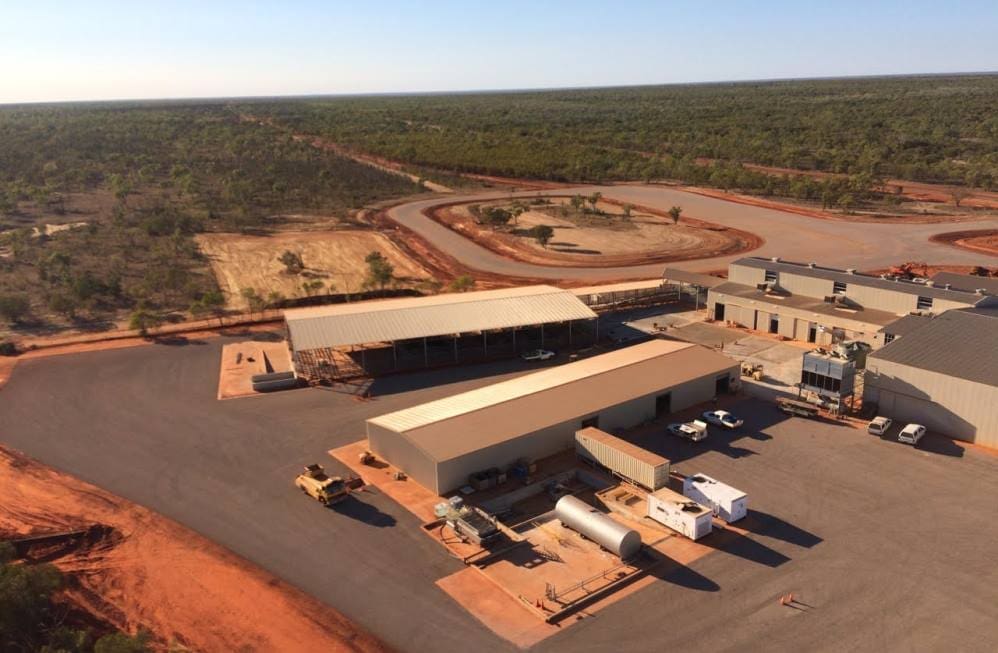
Aerial view with triple roadtrain unloading loop at rear, and cleared area for holding yards to its left.
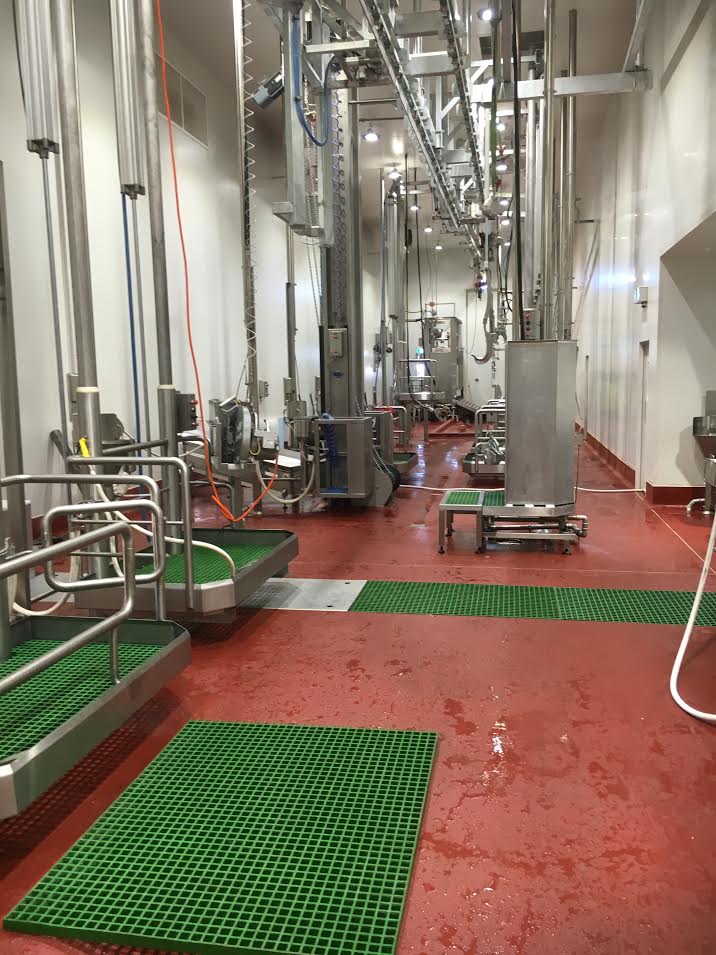
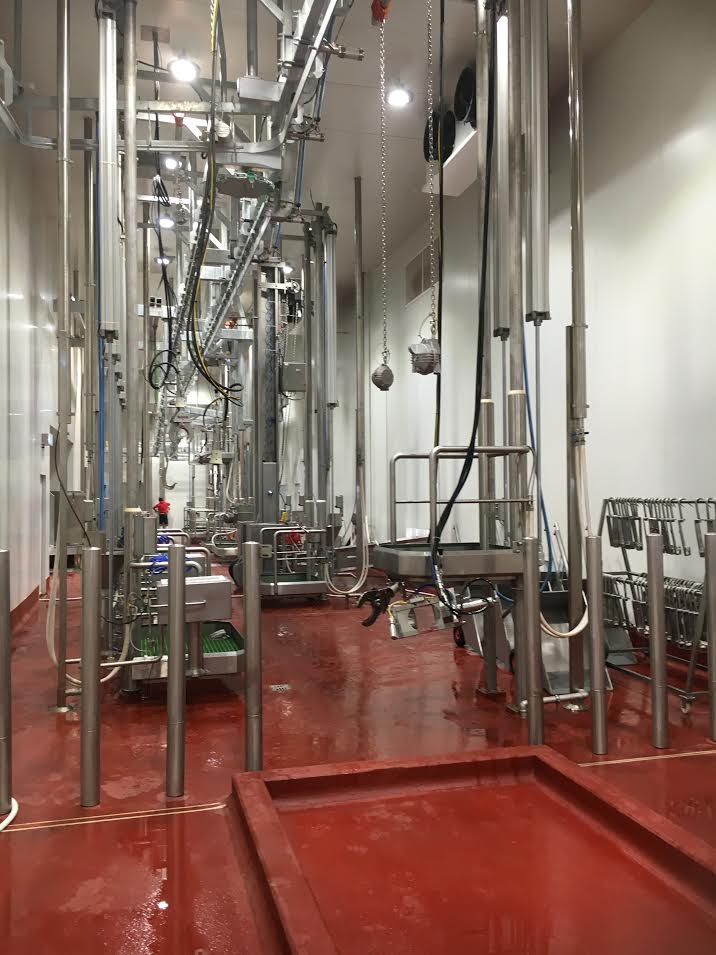
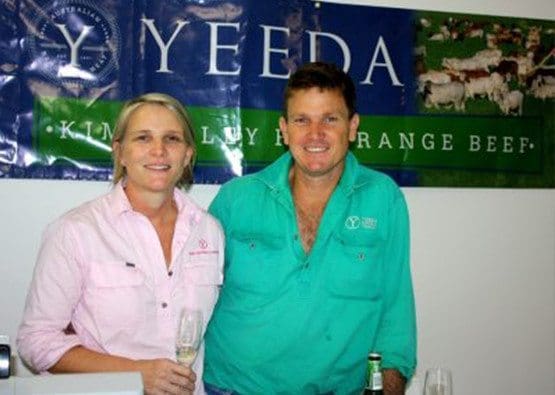
Jack and Vicki Burton from Yeeda Station. Image: Ringers from the Top End.
